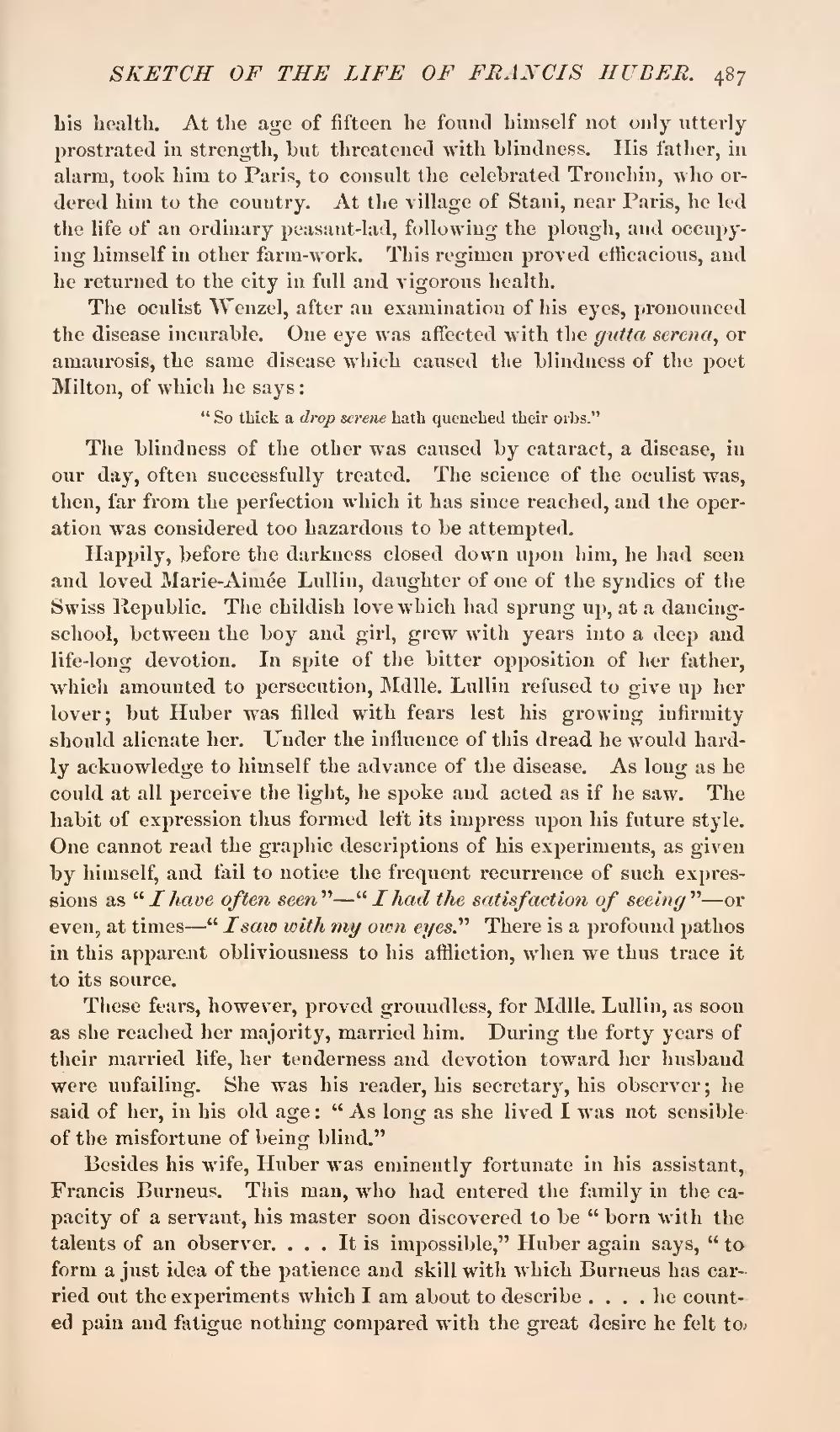his health. At the age of fifteen he found himself not only utterly-prostrated in strength, but threatened with blindness. His father, in alarm, took him to Paris, to consult the celebrated Tronchin, who ordered him to the country. At the village of Stani, near Paris, he led the life of an ordinary peasant-lad, following the plough, and occupying himself in other farm-work. This regimen proved efficacious, and he returned to the city in full and vigorous health.
The oculist Wenzel, after an examination of his eyes, pronounced the disease incurable. One eye was affected with the gutta serena, or amaurosis, the same disease which caused the blindness of the poet Milton, of which he says:
"So thick a drop serene hath quenched their orbs."
The blindness of the other was caused by cataract, a disease, in our day, often successfully treated. The science of the oculist was, then, far from the perfection which it has since reached, and the operation was considered too hazardous to be attempted.
Happily, before the darkness closed down upon him, he had seen and loved Marie-Aimée Lullin, daughter of one of the syndics of the Swiss Republic. The childish love which had sprung up, at a dancing-school, between the boy and girl, grew with years into a deep and life-long devotion. In spite of the bitter opposition of her father, which amounted to persecution, Mdlle. Lullin refused to give up her lover; but Huber was filled with fears lest his growing infirmity should alienate her. Under the influence of this dread he would hardly acknowledge to himself the advance of the disease. As long as he could at all perceive the light, he spoke and acted as if he saw. The habit of expression thus formed left its impress upon his future style. One cannot read the graphic descriptions of his experiments, as given by himself, and fail to notice the frequent recurrence of such expressions as "I have often seen"—"I had the satisfaction of seeing"—or even, at times—"I saw with my own eyes." There is a profound pathos in this apparent obliviousness to his affliction, when we thus trace it to its source.
These fears, however, proved groundless, for Mdlle. Lullin, as soon as she reached her majority, married him. During the forty years of their married life, her tenderness and devotion toward her husband were unfailing. She was his reader, his secretary, his observer; he said of her, in his old age: "As long as she lived I was not sensible of the misfortune of being blind."
Besides his wife, Huber was eminently fortunate in his assistant, Francis Burneus. This man, who had entered the family in the capacity of a servant, his master soon discovered to be "born with the talents of an observer.... It is impossible," Huber again says, "to form a just idea of the patience and skill with which Burneus has carried out the experiments which I am about to describe.... he counted pain and fatigue nothing compared with the great desire he felt to
